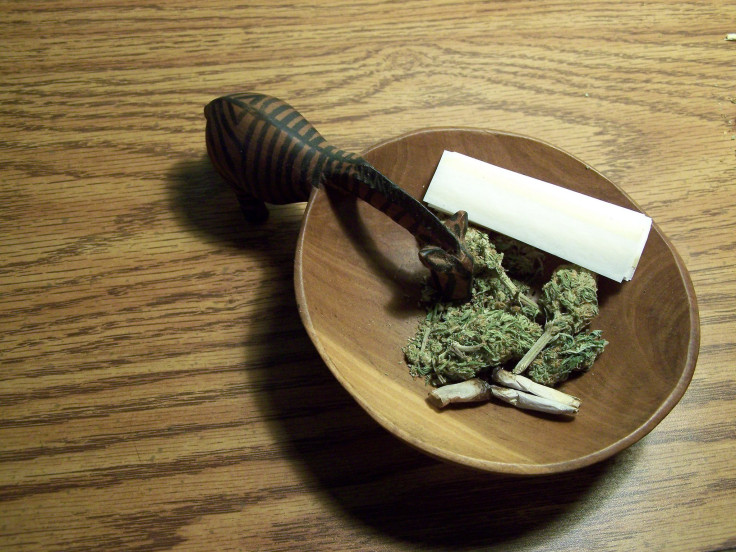Federal Judge Upholds Marijuana's Status As Schedule I; Still As Deadly As Heroin

Hopes were raised and dashed for supporters of marijuana legalization this Wednesday as U.S. District Judge Kimberly J. Mueller upheld marijuana’s status as a Schedule 1 drug fully constitutional. Being the first judge in decades to reexamine marijuana’s classification under the Controlled Substances Act, Mueller offered a potential step forward in examining marijuana from the federal standpoint, but she did not feel it was in her power to make that change.
Responding to defense attorneys’ motion to dismiss charges against marijuana growers, Mueller issued a hearing last year to hold an extensive reexamination of marijuana facts, and whether these facts still adhere to marijuana’s status as Schedule 1. According to Los Angeles Times, Mueller announced her decision this week, staying true to outdated notions that marijuana’s classification is lawful. She claimed, “At some point in time, a court may decide this status to be unconstitutional. But this is not the court and not the time.”
It is possible Mueller’s decision may be appealed, but according to Dale Gieringer, director of the California branch of the National Organization for the Reform of Marijuana Laws, the case being held against the growers must first be resolved. Because of this, it is not likely an appeal hearing will happen until the end of this year, or possibly next year. “This is on a very slow train,” Gieringer said.
Gieringer also claims Mueller had agreed that much had changed since marijuana was first classified as Schedule 1 in 1970, but was reluctant to take action because “a lower court judge has to follow the law.” Gieringer says that this hearing “showed the dysfunctionality of the current drug laws.” During the 15-minute hearing, Mueller had been originally prepared to grant the defense motion, but quickly decided it was up to Congress to make the change.
While changing marijuana’s status on the drug scheduling list does not necessarily mean marijuana will be legalized, it is essential in helping the legalization for recreational or medical use along. Right now, a Schedule 1 classification claims marijuana has a high likelihood of being abused, equating it with drugs like heroin and LSD. To put this into perspective, marijuana is currently ranked as more dangerous than highly addictive narcotics such as oxycodone, Vicodin, and cocaine. Schedule 1 also claims marijuana has absolutely no medical use, while 23 states have disagreed, instituting medical marijuana program to potentially alleviate ailments like pediatric cancer, or even brain tumors.
Despite medical marijuana’s legalization on a state level, its lack of recognition on a federal level makes it subject to the will of federal authorities. This means more frequent raids on dispensaries and growing facilities. As a result, medical marijuana programs are hard to run, which ultimately deprives individuals of the help they need. To top it off, marijuana is exceedingly difficult to obtain for studying purposes, preventing us from discovering more untapped medical benefits.
Those opposed to marijuana legalization are unsurprisingly pleased by the motion. Scott Chipman, chairman of Citizens Against Legalizing Marijuana said, “There is a false sense that marijuana legalization is on the move, when we are seeing a huge pushback against legalization, particularly in small towns across the country. It is a seriously harmful drug that is much stronger than it was in the ’70s and is getting stronger by the month.”
However, some that are in favor of legalization feel this is a step in the right direction. According to Sar Karmin, a marijuana regulation expert at the University of Denver, this decision to reexamine marijuana’s status is yet another testament to growing skepticism toward the illegality of the drug. “While this one came out the other way,” he tells SFGate, “what you see is a lot of momentum in changing federal marijuana law.”
And although this is just a start, at least movements toward reexamination are beginning. As this momentum continues to increase, there may be hope yet for the hidden potential of marijuana.



























